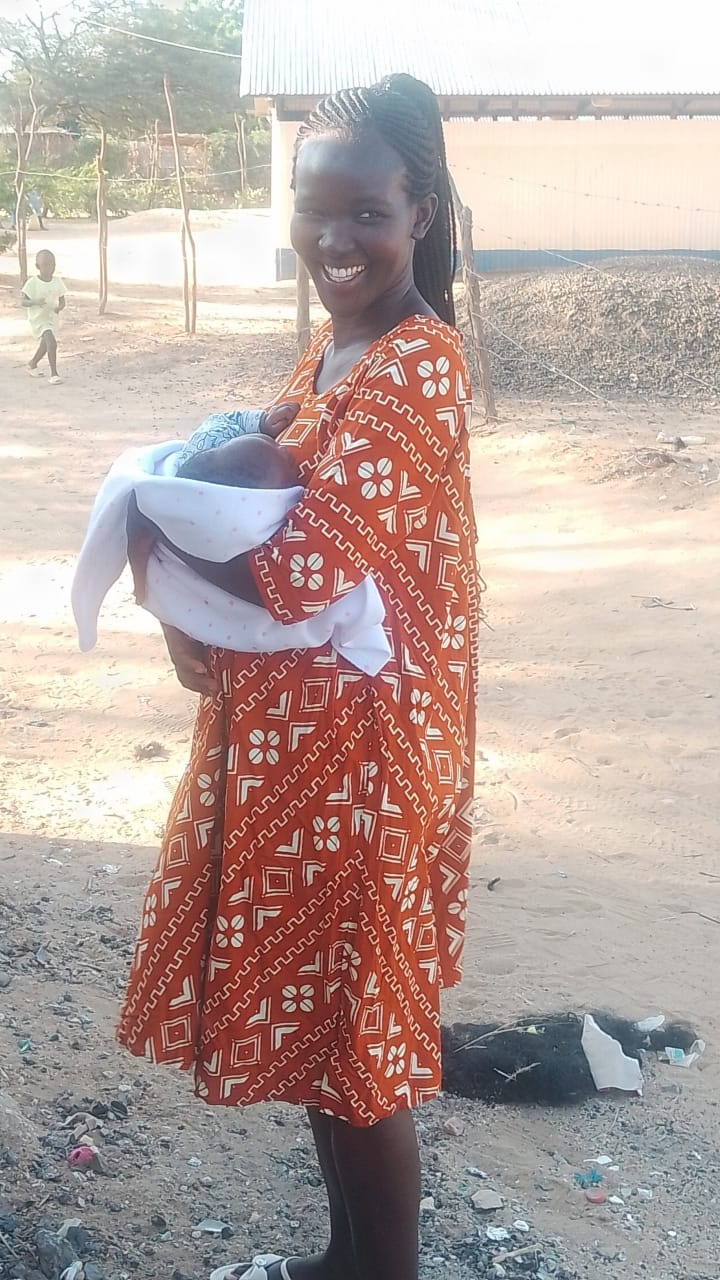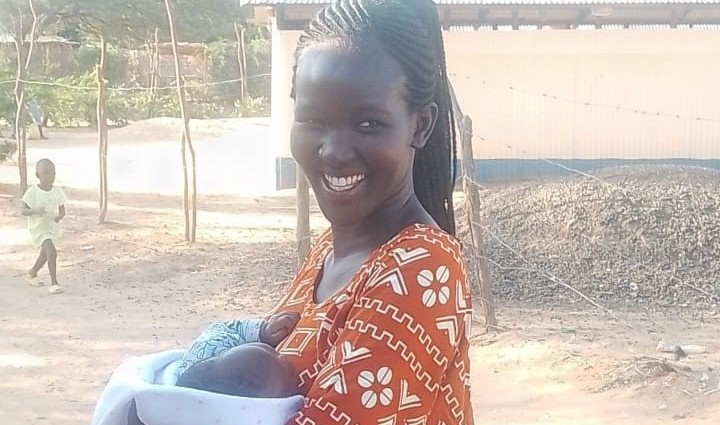Nancy Nabur: A Young Mother’s Experience as Enumerator in Turkana, Kenya
/
Co-authors: Nancy Nabur, Alice Odingo, Edith Abilogo
I am Nancy Nabur, a young mother of a one-month-old baby girl, and I am grateful to have been allowed to participate in this important fieldwork without discrimination. As a woman with a young child, I must say that it was a challenging experience, but one that I ultimately found very rewarding.

When I first set out, I had just recently given birth, yet I was determined to be a part of the enumerator training in Kakuma. The journey from Lodwar was safe, and I managed to attend the training despite the short time since my delivery. During the actual field survey, I faced several obstacles – the roads were impassable due to heavy rain, making transportation a real challenge. And tracking down the pastoralist respondents who lived far from the village proved to be an uphill task.
Yet, I was driven by my passion for the work, which aligns so closely with my values and interests, particularly around health, child welfare, and community development. I knew that this research could make a meaningful impact, and that motivation helped me to persist despite the personal challenges.
One of the most difficult moments was when I encountered a grandmother suffering from stomach cancer. Seeing her in such poor health and not being able to provide more assistance was truly painful. But I did what I could, informing her to seek medical care.
Throughout it all, I had to carefully manage my time and responsibilities, balancing family needs with interview preparations. I was honest about my situation and determined to deliver on my duties as a young mother. Having the support of my younger sister, who helped care for the baby during the interviews, was invaluable.
I also found that being a mother with a baby in tow actually worked to my advantage in many ways. The local Turkana community has a deep respect for motherhood, and my presence with the child seemed to increase the trust and reliability that respondents felt towards me. They would often offer to hold the baby, creating a more collaborative and supportive environment.
In fact, I believe that my experiences as a mother have helped me better understand certain challenges faced by the communities I study, particularly around access to healthcare and clean water. As a mother, I have firsthand knowledge of the importance of immunizations, nutrition, and maintaining good health for my child.
Looking ahead, I would advise other women researchers in similar situations to listen to their bodies and minds, set clear boundaries, and embrace flexibility. It’s crucial to take care of oneself physically and mentally, and to be prepared to adapt research plans as needed. Childcare support and a strong support network can also make a big difference.
Despite the challenges, I am grateful that my survey work was ultimately successful. I hope that my story can inspire other young mothers to pursue their research passions, and that future projects can be designed with more accommodations for the needs of mothers in the field.
Categories
Countries
CLARE Pillars
CLARE Themes
CLARE Topics
Published
CLARE Projects
CLARE Partners


